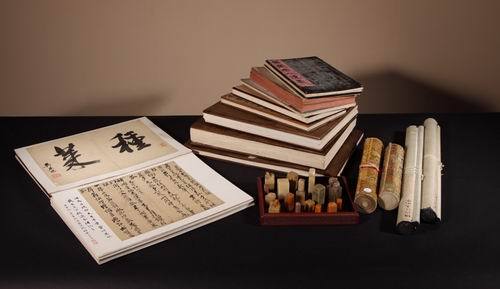Cultural heritage preserved in private book collections

People realize that collections of ancient books are more than merely valuable documents, but also antiques and forms of art. Private collections exert a great influence on preserving Chinese cultural heritage.
China has a long history of private book collections. In the Han Dynasty, noted scholars Zheng Xuan and Cai Yong were among those who became famous for their extensive private libraries. In the Song Dynasty, woodblock printing allowed for a boom in book collection.
Even today, the Tieqintongjian Library in Changshu, Jiangsu Province, which was owned by the Qu family, and the Baqianjuan Library in Hangzhou, Zhejiang Province, owned by the Ding family, are distinguished private libraries. Throughout China’s literary history, private collectors have played a significant role in the preservation of books and cultural heritage.
The rise of modern public libraries brought the decline of private libraries. But as China’s economic status has improved, so too has the status of private collections.
A number of famous collectors have emerged in the modern era, such as Zhou Shutao (1891-1984). Zhou was born into a family of court officials in the late Qing Dynasty. He loved books throughout his whole life and collected almost 100 editions of books from the Song Dynasty. His private library is just as famous as the collections of Fu Zengxiang (1872-1950) and Li Shengduo (1859-1934).
Although most of Zhou’s collected books were donated to the government, Zhou’s passion for reading and collecting books influenced later generations. Zhou’s youngest son Zhou Jingliang, a research fellow from the Institute of Geology and Geophysics at the Chinese Academy of Sciences, said that when his father was alive, three rooms were needed to store books at his home. Even now, Zhou Jingliang still keeps one wooden box left by his father for books in the bedroom. Most of Zhou’s books are preserved in these kinds of boxes, which are specially designed to store rare books.
Influenced by family traditions, the Zhou family has cultivated a large number of scholars, such as Buddhism expert Zhou Shujia (1899-1970), historian Zhou Yiliang (1913-2001) and literary scholar Zhou Jueliang (1916-92). Zhou Shutao’s nephew Zhou Shaoliang (1917-2005) was also a famous collector of books. In contrast with his uncle’s, Zhou Shaoliang’s collection was primarily dedicated to his literary research. His included Buddhist novels, also known as baojuan, and books related to studies of the famed literary masterpiece, Dream of the Red Chamber. Zhou Shaoliang collected more than 10,000 varieties of novels published in the Ming and Qing dynasties and many of these novels are rare editions.
Today, there is no shortage of book collectors, and most of them are engaged in studies of literature and history. They are generally not famous for the size of their collections, instead they are notable for their specialization.
With the development of China, the collection of ancient books has changed tremendously. The rise of auction markets in the early 1990s proved to be a key development.
It was not long before bookstores for ancient books and private collectors had become the main repositories and channels for book collection, and the majority of the buyers were scholars.
Today, the general public has access to these collections of ancient books. Auctions have made people realize that books are more than merely valuable documents. They are antiques and forms of art. These auctions have also put these books on a global stage.
The Chinese market economy has improved, and more Chinese auction houses have begun to go overseas to collect cultural treasures in order to expand their inventories. The prosperity of the Chinese auction market for ancient books has attracted attention from overseas collectors and international businesses, which in turn promotes Chinese culture overseas.
